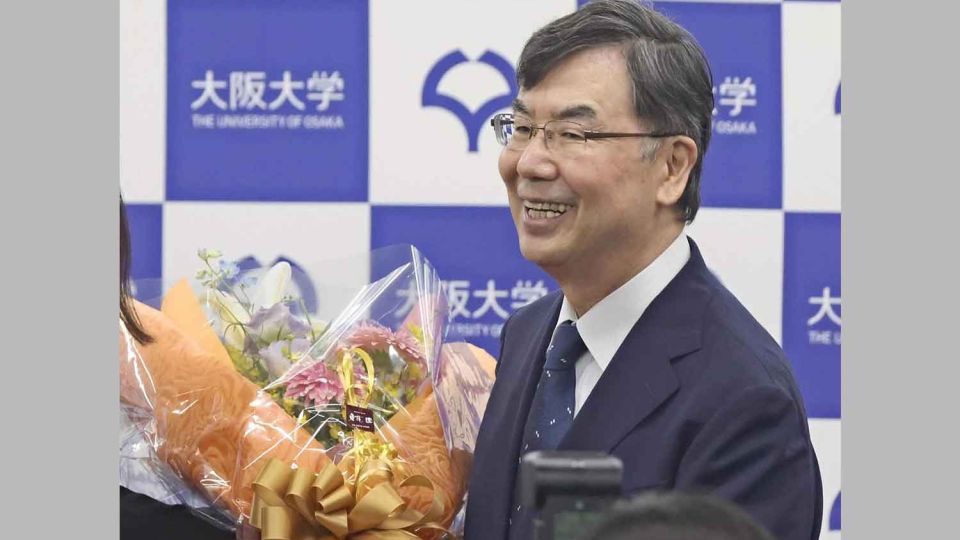October 8, 2025
TOKYO – This is how many of his fellow researchers describe Shimon Sakaguchi, one of the three winners of the 2025 Nobel Prize in Physiology or Medicine.
Sakaguchi has continued his research, despite people saying it likely will not lead to anything.
Sakaguchi’s research on regulatory T cells, which suppress immune responses, was long met with skepticism and dismissed as hard to believe. Having led a somewhat solitary life in research, he persisted in his pursuit, opening up a new frontier in immunology.
After graduating from high school in Nagahama, Shiga Prefecture, he aimed for Kyoto University’s Faculty of Medicine but was not able to get in on his first attempt. He spent the following year studying at home, without attending a prep school.
“Even when I came across things I didn’t understand, I had no choice but to think them through myself,” Sakaguchi said, recalling when he began forging the persistence that eventually led to his achievements.
The following year, he was accepted into the university, where he began studying immunology. He learned about the possible existence of unknown immune cells and immersed himself in research.
However, a paper by a researcher whose work was similar to his own was refuted by a U.S. research team.
Though his peers left, he remained convinced by the phenomenon he discovered through laboratory experiments and continued his research.
In 1995, nearly 20 years after Sakaguchi began his research, he finally discovered the protein marking regulatory T cells. Once his discovery was confirmed by other researchers, the tide turned.
The word he cherishes is “un-don-kon,” which literally means luck, plodding and persistence.
“The world is flooded with all kinds of information, and trends come and go, but maintaining interest in what you really want to know is the essence of being a researcher,” said Sakaguchi.

